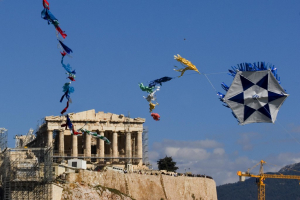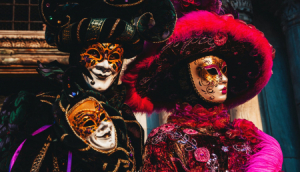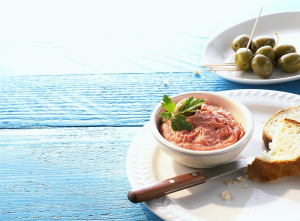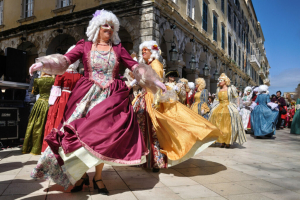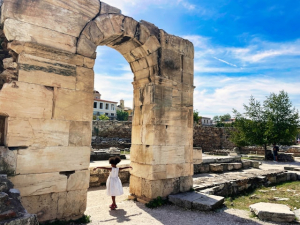XpatAthens
The Weekend Of Clean Monday - Festive Celebrations In Athens
-
11:00: Athens Art Gallery: Collage with Confetti. Children aged 4 to 6 can create paper war collages in the Art Gallery.
-
11:00: St. George's Square, Kipseli: "I'm carnival, I'm playing, I'm tumbling." Children's educational experiential program.
-
11:00: Gennaiou Kolokotroni & Matrozou: Children's Apokries Celebration. Music, dancing, contests, and theatrical performances await.
-
11:30: Kallidromiou Street: Musical Tour of the Philharmonic Orchestra of the Municipality of Athens.
-
12:00: Filopappou-Troon-Dorieon-Merkouri Square: Carnival Route with the percussion ensemble Bloco Swingueira with dance and rhythms from Brazil.
-
12:00: Papadiamanti Square - Halepa - Agios Andreas Lamprini Square: Carnival route of the revival of lesbian skating with the participation of the Lesvos Farmers' Union "Agios Dimitrios" and the Cultural Association of Traditional Dances and Cultural Activities "O Molyvos."
-
11:30: Zappeio (courtyard area): Halloween children's celebration. Carnival rhythms with the Philharmonic Orchestra of the Municipality of Athens.
-
17:30: Syntagma Square and Monastiraki Square: Revival of Plakiotiki Carnival. Action of the Professional Chamber of Athens with the support of OPANDA. Carnival parade from Syntagma Square to Monastiraki Square.
-
11:00: Filopappou Hill: Musical Tour of the Philharmonic Orchestra of the Municipality of Athens.
-
12:00: Filopappou Hill: Concert by the band "Charisma" and Isidoros Pateros.
-
11:00: Kapaps Park: Traditional feast with music, dances, and Lenten dishes from the Cultural Association of Ano Ampelokipi, supported by OPANDA.
Could You Be Imposing Your Own Desires Onto Your Children?
Originally published in Greek on: loveyourselfmagazine.com

Love Yourself is a comprehensive Greek media platform dedicated to embracing mindstyle as its fundamental essence. It advocates for a wholesome lifestyle that nurtures not only our soul, mind, and body but also promotes a positive and sustainable attitude towards the planet we call home. For more information, visit Love Yourself's website!
Poor Things By Yorgos Lanthimos Wins 4 Oscars
Embracing The Digital Nomad Lifestyle: Why Greece Is The Ideal Destination
If you're aspiring to become a successful digital nomad in Greece,
check out this article for valuable tips and insights.
Emotional Intelligence: Illuminating The Path To Deeper Connections
Originally published in Greek on: loveyourselfmagazine.com

Love Yourself is a comprehensive Greek media platform dedicated to embracing mindstyle as its fundamental essence. It advocates for a wholesome lifestyle that nurtures not only our soul, mind, and body but also promotes a positive and sustainable attitude towards the planet we call home. For more information, visit Love Yourself's website!
Apokries (Carnival) In Greece
Taramosalata: A Lenten Dip For Clean Monday
- In a large bowl, add the bread and water. Let it soak thoroughly.
- Line a separate bowl with a kitchen towel. Add the bread and water. Wrap the bread in the towel and wring to remove as much of the water as possible. Transfer to a bowl and set aside.
- In a food processor, add the onion, garlic, and 200 g of water. Beat until completely pulverized.
- Transfer to a bowl lined with a kitchen towel and wring to remove as much of the liquid as possible.
- Place back in the food processor and add the fish roe, soaked bread, pepper, lemon juice, and lemon zest (2-3 lemons, depending on their acidity and your preferences). Beat for 3-4 minutes until the mixture is completely combined and fluffy.
- Add the olive oil and vegetable oil in a slow, steady stream while beating. If your food processor doesn’t have an opening, add the oils in 50-gram batches for each type of oil.
- Taste and adjust the lemon to your liking.
- Serve with olive oil, pepper, thyme, and olives.
Unique Carnival Customs Around Greece
Let's explore some weird and wonderful traditions that have been passed down through generations.
Alevromoutzouroma, Galaxidi
 Credit: George Tzafos Courtesy: alevromoutzouroma.gr
Credit: George Tzafos Courtesy: alevromoutzouroma.grIn the town of Galaxidi, Apokries takes on a uniquely messy tradition known as Alevromoutzouroma, or Flour Wars. This custom likely traces back to the Byzantine era, when chariot racers would paint their faces. However, it wasn't until the maritime era, starting around 1840, that it gained widespread popularity, particularly among sailors bidding farewell to their families before embarking on their journeys.
During this festive occasion, the port of Galaxidi transforms into a battleground as participants armed with bags of flour engage in friendly battles, covering each other in powdery white. For visitors who prefer to stay flour-free, there is a simple solution: they have to sport a "moutzoura," or a cross on their forehead made of shoe polish, ensuring they remain unscathed amidst the floury madness.
Genitsaroi & Boules, Naousa
 Credit: Xydas Yiannis
Credit: Xydas YiannisIn Naousa, during the festive season of Apokries, the town bursts into a vibrant celebration filled with laughter and colorful traditions. One such tradition involves the Genitsaroi and Boules, who bring history alive amidst a whirlwind of excitement. Months of preparation lead up to this uproarious affair, with participants scouring for the perfect attire and borrowing shiny baubles from family and friends.
The Genitsaroi proudly don their fustanellas, traditional skirts adorned with sparkling silver, and brandish their long swords, known as "palas." Their faces are covered with wax masks. On the other hand, the Boules, men dressed as women, are gracefully draped in flowing dresses. Their faces, too, hidden behind wax masks embellished with ribbons and flowers, exude an air of mystery. As the procession begins, led by excited children, the air fills with the lively melodies of the zurna and the rhythmic beats of the daouli drum. It's a spectacle of joy and merriment, marking the climax of this enchanting celebration.
The Stealing of the Bride, Rethymno

In the municipality of Mylopotamos in Rethymno, a unique tradition is revived during Clean Monday. This custom dates back to the Turkish occupation era. Participants reenact the scene with figures representing the bride, her six brothers, and characters like the Turkish judge. For about four centuries, locals have kept this tradition alive through playful acts, dancing, and enjoying traditional treats.
Before the wedding, the bride is "examined" by the Turkish judge to test her purity. The scene unfolds with the bride's siblings dancing in the square, while spectators pretend to be Turks trying to "steal" her. Despite attempts by the pretend Turks, the siblings protect the bride by playfully "hitting" them with screws. Eventually, the bride is "stolen" by people known to her brothers, only to return later, often pretending to be pregnant. The event is filled with laughter, music, and treats, creating a vibrant atmosphere that celebrates local culture and heritage.
Babougera, Serres
 Credit: Geo Selalm
Credit: Geo Selalm The Tapoutzides, pivotal figures in the performance, safeguard the group, especially the bride, from potential "kidnappers" among the audience. Their tapus sticks, derived from the Turkish word for "ball," are used forcefully, instilling fear and respect. Additionally, characters like the bear and the monkey add to the spectacle, each symbolizing different aspects of village life and traditions. The event begins with church services and progresses through the village with accompanying bagpipes and bells, culminating in lively celebrations in the central square, including feasting and dancing.
Kodonofoi, Thessaloniki
 Credit: Motion Team
Credit: Motion TeamEmbracing their heritage, villagers don sheepskin, animal hides, and masks, joining in the joyous Dionysian festivities. Amidst the clangor of bells and the spectacle of painted faces, the Kodonoforoi breathe life into tradition, embodying the enduring spirit of community and the resilience of cultural heritage in Thessaloniki.
Geroi & Koreles, Skyros

Apokries in Skyros, offers a glimpse into a colorful festival where tradition meets celebration. Among its key players are three central characters: the Old Man, Korela, and the Frank. The Old Man is dressed in traditional shepherd attire and a goatskin mask and carries on the legacy of generations past. His outfit, complete with heavy bells around his waist, creates a rhythmic melody as he moves.Korela, often embodied by women in traditional dress, adds to the spectacle with graceful dance moves and waving scarves. Meanwhile, the Frank's attire satirizes those who embraced Western fashion, adding a touch of humor to the festivities.
Throughout the carnival, participants engage in friendly competitions and perform satirical verses, reflecting on both island life and current events. The celebrations culminate in a lively gathering at the Castle, where the community comes together to revel in Skyros's rich cultural heritage.
Family Fun in Athens: Top Activities For Kids

Credit: Heracles Kritikos

Courtesy: Wikimedia Commons

Credit: Eleanna Kounoupa

Credit: @nikolashots

Courtesy: Athens Happy Train

Courtesy: Eugenides Foundation

Credit: @anna_lullaby

Courtesy: Wikimedia Commons

